About Casa
Home for the Arts in Southern AlbertaCasa: The Building
Casa opened in May of 2013 and has embraced core concepts of experimentation, incubation, learning and growing. Serving a multi-generational community, with varying art skill sets and interests in all disciplines of the arts, Casa is a busy space. The building far surpasses the original vision for expansion and sets a new standard for interdisciplinary arts centres.
Designing the building was a comprehensive and collaborative process led by Pendergast Nyhoff Collaborative Architecture (PNCA) working in conjunction with the local architectural firm of Ferrari Westwood Babits. The architectural team visited numerous arts education institutions and also met with members of the local arts community to define requirements for a truly functional 42,000 square foot art centre. The resulting building design is truly impressive. Funding for the project were provided by the Federal Build Canada Fund ($6,000,000.), the Provincial MSI Fund ($14,900,000.) and the City of Lethbridge ($200,000).
The Allied Arts Council of Lethbridge manages Casa on behalf of the City of Lethbridge. Learn more about visitor numbers, events and programs in the previous year by reading the Allied Arts Council’s Annual Report.
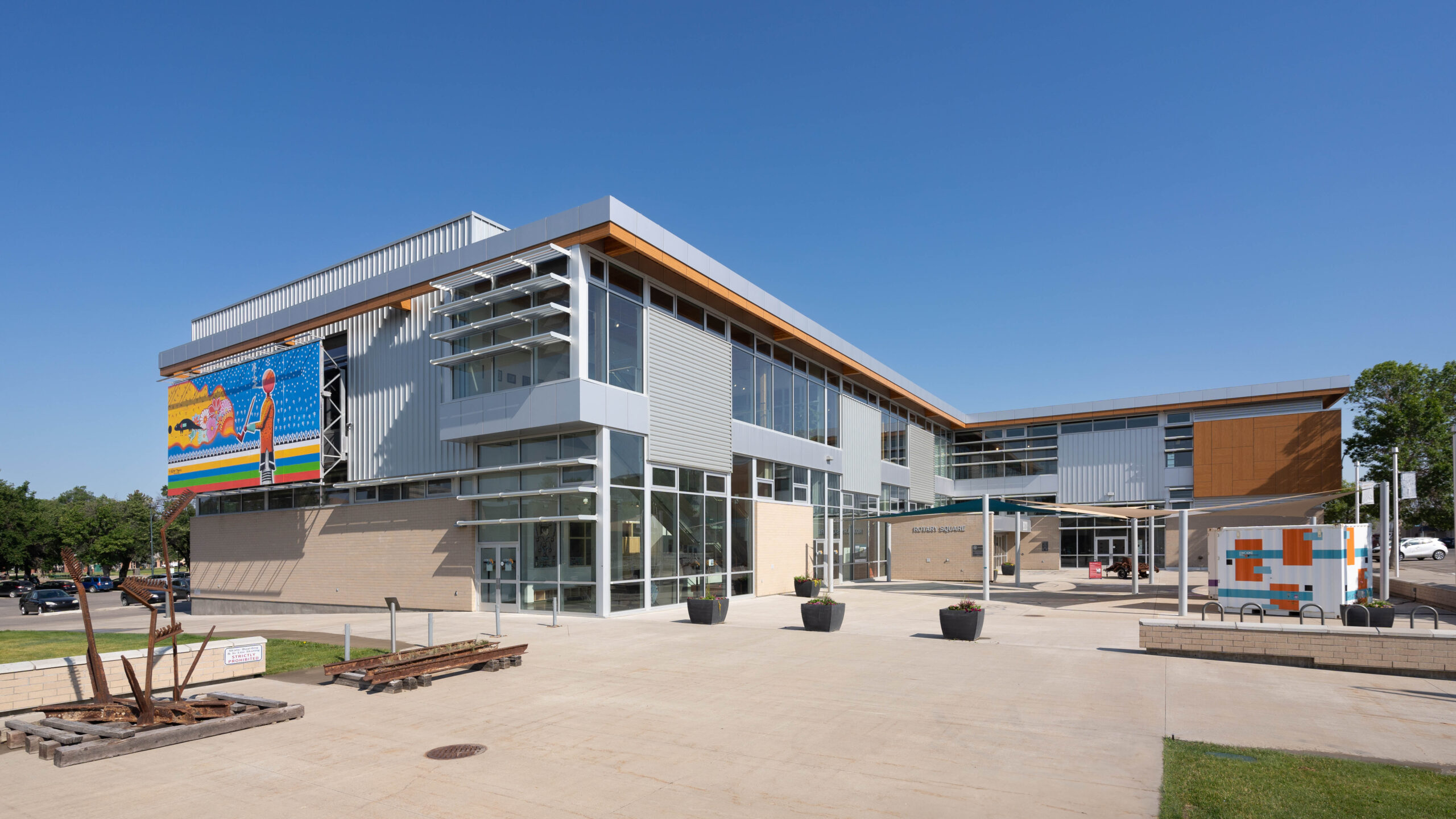
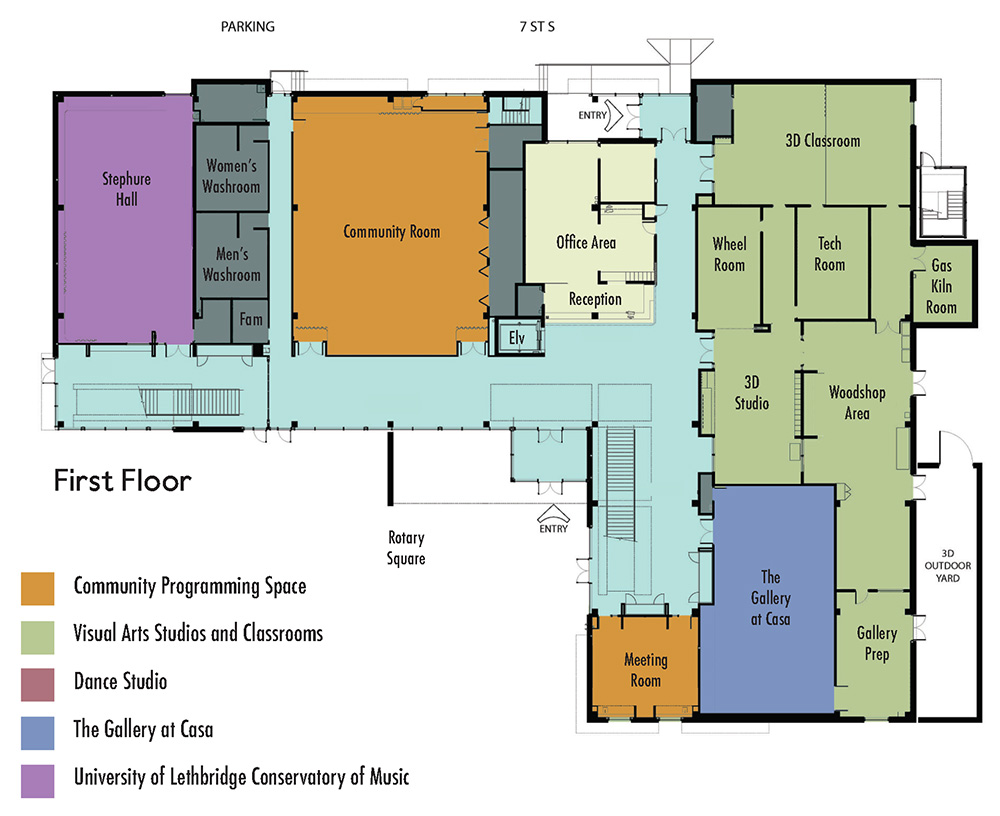
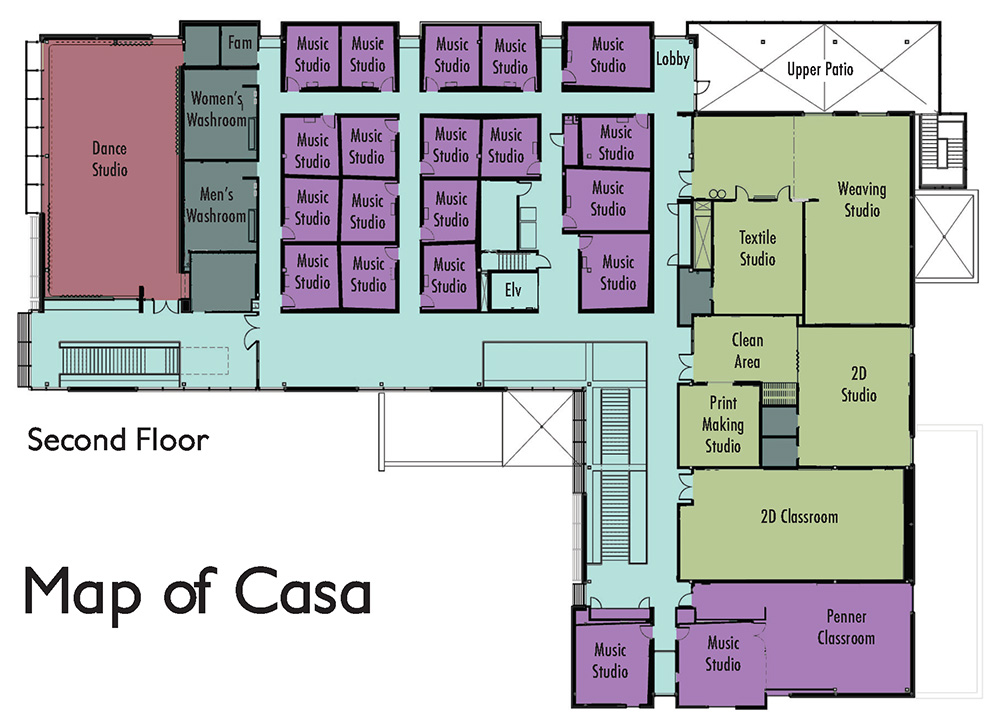
Public Art at Casa
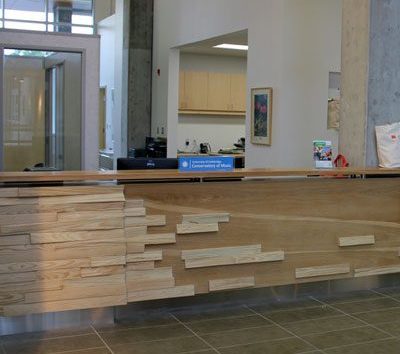
Common Unity by George Heagle
Communaitus (Latin) “the coming together with gift” is the concept expressed in the Casa reception desk project. Artist, George Heagle, created a work that represents the bringing together of the visual art, craft, performance and larger communities of Lethbridge in one facility through his use of floating wooden blocks (scattered over a panel representing the coulee landscape) which slowly meld together forming a solid foundation on each end of the desk.
The desk façade has layered meanings: the beautiful erode area upon which Lethbridge was founded; the unification of the arts and community under one roof allowing creative expression to be exchanged amongst many diverse participants; the joining of the University of Lethbridge Conservatory of Music and community artists working in all disciplines; and finally creative potential finding its voice in time and space.
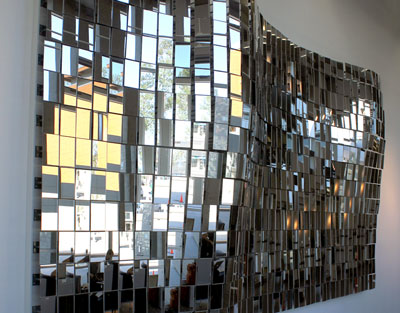
Mirrored Earth by Nancy Chew and Jacqueline Metz
Mirrored Earth is about the landscape of coulees, the relationship between context and interpretation, about ways of seeing. The movement of passers-by activates the artwork. Mirrors form a pixelated landscape, capturing and refracting light, pattern, colour, abstracting the world around us, always shifting as the light changes, as people pass by. Scattered mirrors react to movement, evoking the glimmer of sun on water, a flutter of rising birds, the way sunflowers follow the sun’s passage through the sky. The artwork becomes one of shifting imagery that gathers into itself, references to sky and the world beyond, to darkness and light, to stillness and motion.
The work Mirrored Earth was commissioned for the main foyer of Casa and incorporates approximately 600 wall mounted mirrors arranged to replicate the coulees. The work is interactive with sensors that trigger some of the mirrors to turn and follow people passing through area. The work was selected because of the strong visual impact and the constantly changing nature of the work. The reflective quality of the work and its capacity to respond to people as they pass by ensures that the viewer’s experience with the piece will change each time they see the work.
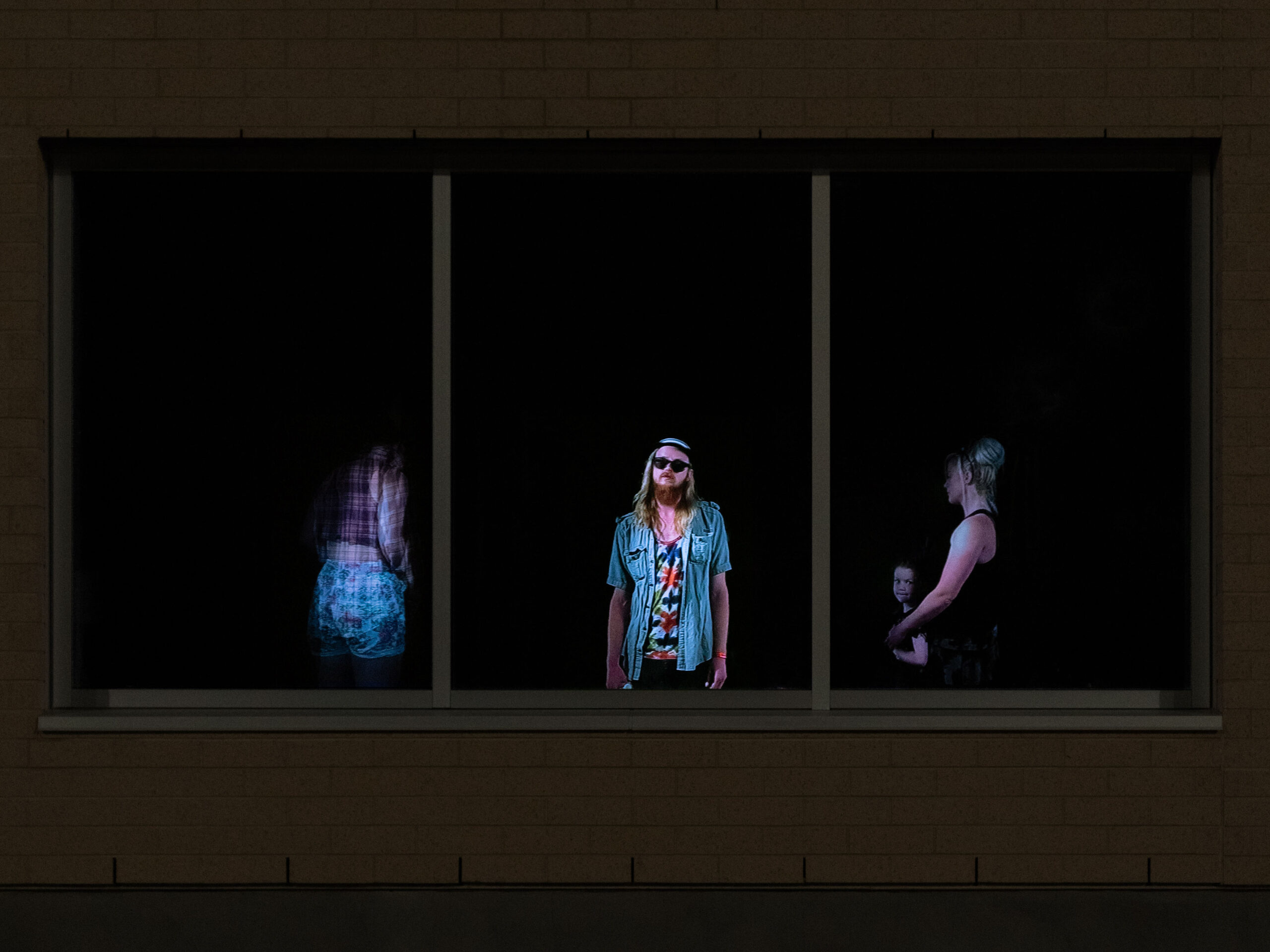
People in the Window by David Hoffos
This work is on a long-term loan from the Alberta Foundation for the Arts. People in the Window is a three-channel silent video and mixed media installation, presenting a ghostly illusion of presence and movement in a darkened window.
This site-specific intervention in the Casa display window combines and develops some of the illusion techniques that David Hoffos has been experimenting with for the past 20 years. The video portraits were shot in July 2014 at the South Country Fair, Fort Macleod’s long-running yearly music and arts festival. “Within this casual and friendly atmosphere, I found a diverse group of participants that I hoped would suggest both a tight-knit “family” or sub-culture and also a cross-section of their larger community,” says Hoffos.
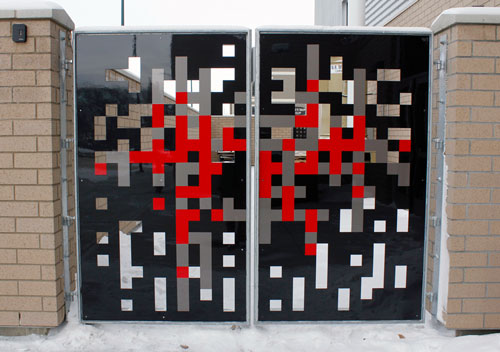
Bit Portal by Marta Timmer (Blicharz)
The concept for this work is derived from digital glitches, which often display as an apparition of scrambled pixels on a screen. In the gate and grill the pixels stand for building blocks of the bigger picture symbolizing the many art genres that come together under one roof. The erratic pixels reveal the medium at play, but shroud its inner workings in mystery, weather here in the courtyard or in the digital realm.
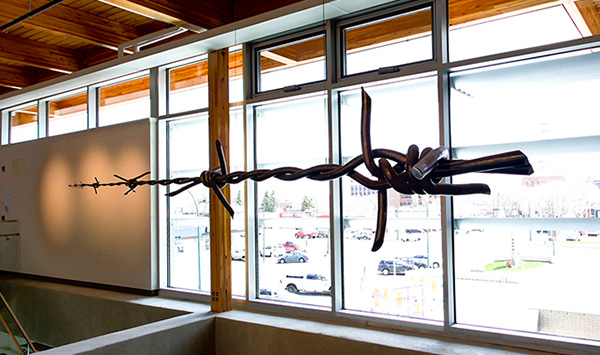
Strung by Gordon Ferguson
Courtesy of the McIntyre Ranch Co. Ltd. Collection
This artwork was conceived during an artist’s residency at the McIntyre Ranch in southern Alberta in 2004. The overwhelming immensity of the place caused a close look at the small details in and around the ranch property. This intense inspection led to creating a section of barbed wire that diminished in size from very large to actual size. This piece is made from small pieces of pipe, tapered and welded together to form a strip of barbed wire in forced perspective.
Ferguson is interested in the terrain between images and objects. Strung may cause people to reflect about how we comprehend the world around us.
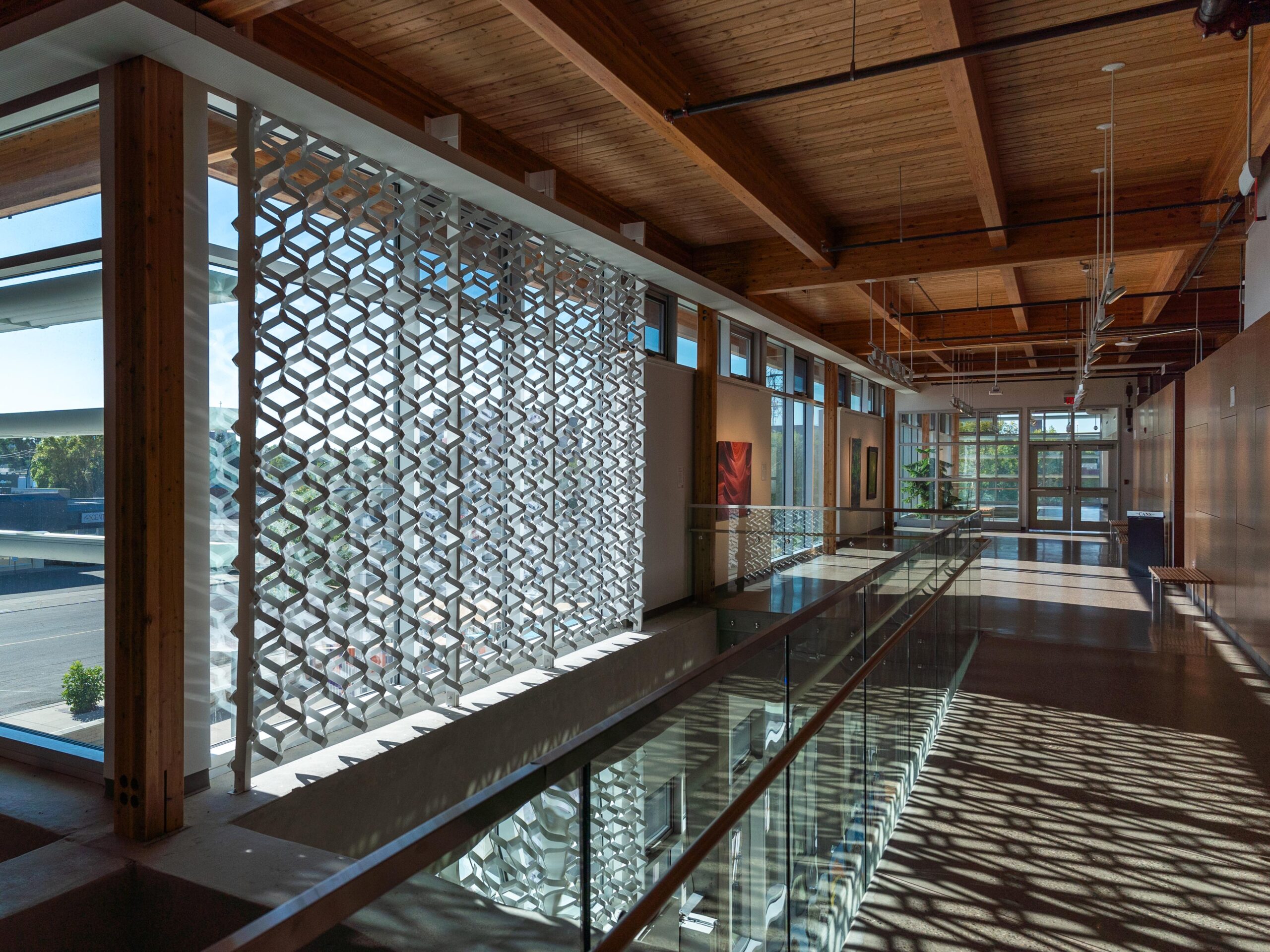
Geometry of Sky by Andrew Rabyniuk
Comprised of panels of 16 gauge powder coated steel, this installation provides a negotiation between inside & outside and land & sky. Practically, the piece mediates the direct prairie sunlight that Casa’s east face receives throughout the year. Aesthetically, the piece brings to mind cartographer’s grids, the undulating landscape of the prairie and humanity’s relationship with the sun.
Shadows created by the lattice change throughout the day though are quite pronounced in the morning.


